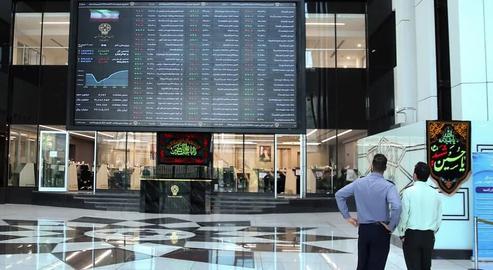Two months and 29 days have passed since Ebrahim Raisi’s inauguration as president of Iran. In the run-up to the June 19 election, both Raisi and his two deputies placed enormous emphasis on the curative powers of the "stock market" during campaigning. But between the day Raisi formally took office and November 1 this year, the Tehran Stock Exchange index has fallen by 210,000 units. Between August 25 and October 31, the market value of the same fell by close to one quadrillion tomans (US$35.7bn): a sixth of the total.
Four months and 17 days ago, three days before the election, Raisi went to the Tehran Stock Exchange to hear the complaints of the "losers". He told them: "The stock market issue is one of our most serious concerns, and I believe all solutions should lead to increased confidence in shareholders and the public.” He assured investors that in doing so, his government was not seeking to compensate for the budget deficit: "The stock market should not become a means to resolve the country's budgetary problems.”
Raisi was not the only presidential hopeful to trumpet the importance of the stock exchange in spring. Other candidates, most notably those who went on to receive posts in the 13th government after the vote, also spoke enthusiastically about reorganizing the capital market. Mohsen Rezaei, now economic vice-president and secretary of the Supreme Economic Coordination Council, repeatedly blamed the previous government for people's losses and spoke of compensating shareholders. Since taking on the new roles, he has called on shareholders to be "patient".
"I will resolve the stock market problem in three days," boasted Ehsan Ghazizadeh Hashemi, another early candidate in the 2021 elections later knocked out by the Guardian Council, who now heads up the Foundation of Martyrs’ and Veterans’ Affairs. Not three days, but three months have now passed since his appointment, and the problem remains stubbornly unresolved – worse than before, in fact.
These days, Iranian domestic media is a cacophony of “experts” touting their hot takes on the reasons for Iran’s stock market crash. The common denominator in all the critique and analysis is how it was exploited to plug the government budget deficit – to the point that even Islamic Republic of Iran Broadcasting is talking about it having been “deliberately” collapsed, in a bid to encourage investors to sell their shares and buy government bonds instead. Ehsan Khandouzi, Raisi’s new Minister of Finance, claimed that government expenditure in October was covered without the issuance of "any new bonds". The official statistics, meanwhile, show the sale of government bonds has soared since Raisi's inauguration.
According to official reports, in April this year the value of government bonds on the Tehran Stock Exchange and the over-the-counter (OTC) market in Iran was about 277 trillion tomans ($9.9bn), increasing to about 297 trillion tomans ($10.6bn) by the time of the inauguration. But suddenly, between then and September, the value of bonds shot up to 332 trillion tomans ($11.8bn). Nothing has yet been published on the state of play in October, and Khandouzi did not qualify his claim any further. But if we accept the government did not issue new bonds in October, there are virtually only two ways it could have offset the budget deficit: one would have been to withdraw resources from the Central Bank by any means possible, and the other would have been market manipulation to increase the value of the bonds.
It doesn’t stop here. Khandouzi and the rest of the 13th government’s economic team are now unveiling the third phase: the sale of surplus government property on the commodity market, the consequences of which are not clear for either the Tehran Stock Exchange or the OTC market. If this plan is successful in practice, part of the government budget deficit will be compensated for – and of course, some of the capital of Tehran Stock Exchange will flow into the commodity market, which will probably cause a further decline in stock value.
It appears that the root cause of Iran's economic crisis, and in particular the stock market issue, is the government's budget deficit. Erahim Raisi and his colleagues and supporters still insist that the budget deficit came about due to the inefficiencies of the Rouhani administration, but have so far failed to come up with a solution in the absence of oil revenues. The return of US sanctions and the decline in government foreign exchange revenues have created a full-blown financial stalemate for which there is no alternative but to seek to reverse the situation. But can such a move be expected from the “revolutionary government” of Ebrahim Raisi?
Related coverage:
Is Tehran’s Stock Exchange Worth Resuscitating?
Iranians Brace for the Biggest Stock Market Crash in Recent Memory
The Latest Economic Hallucinations of the Speaker of Parliament
Raisi’s Don Quixote Cabinet and Hopes for Economic Recovery
Iran's 'Empty Treasury' Panic is Back With a Vengeance. Who's Right?
Internal Report: Iran's Government is Drowning in Debt
The Iranian Government’s Debt Problem Can Only Get Worse Under Raisi
Deeply Religious 'Safe Pair of Hands' is Iran's New Economy Chief
visit the accountability section
In this section of Iran Wire, you can contact the officials and launch your campaign for various problems

























comments